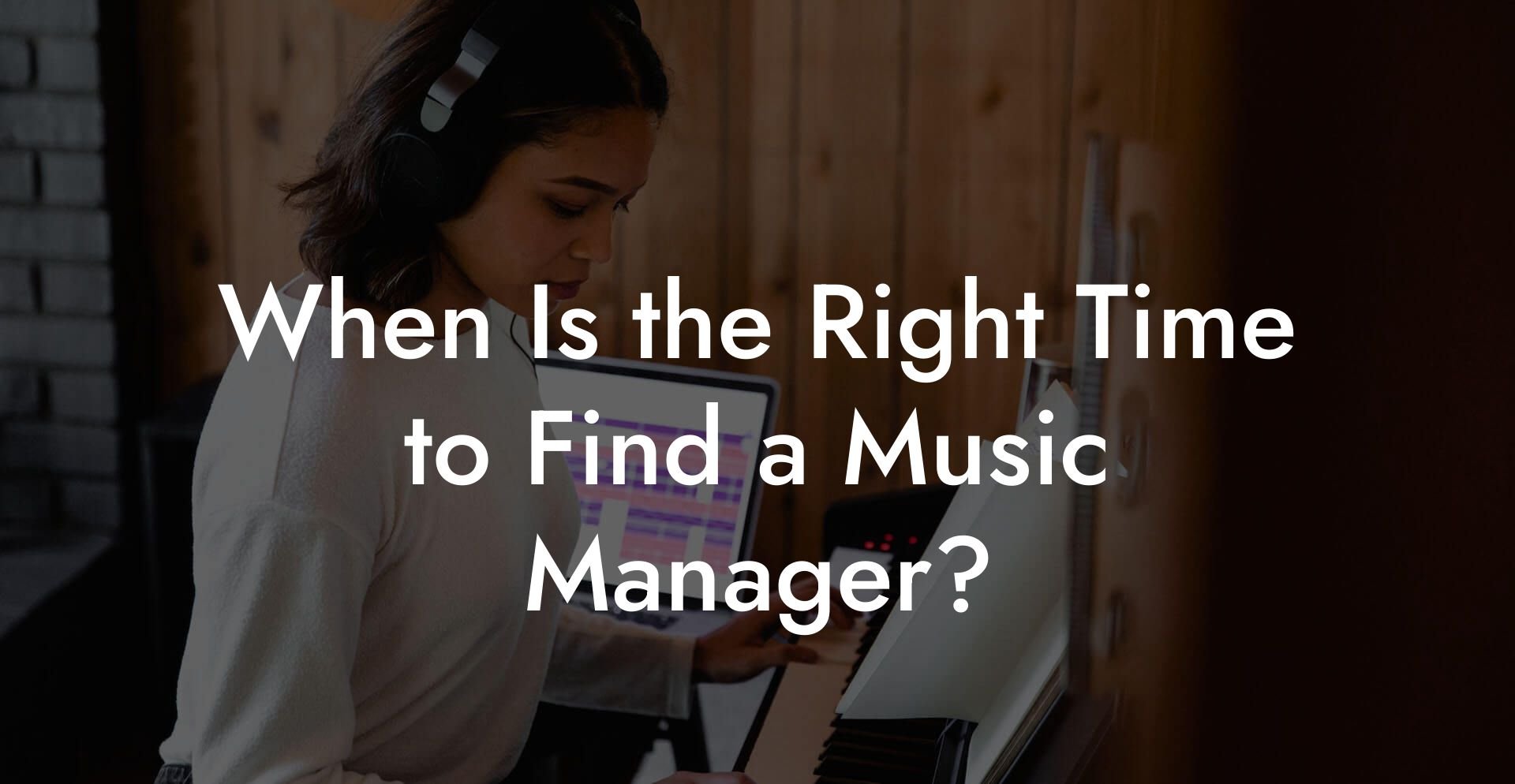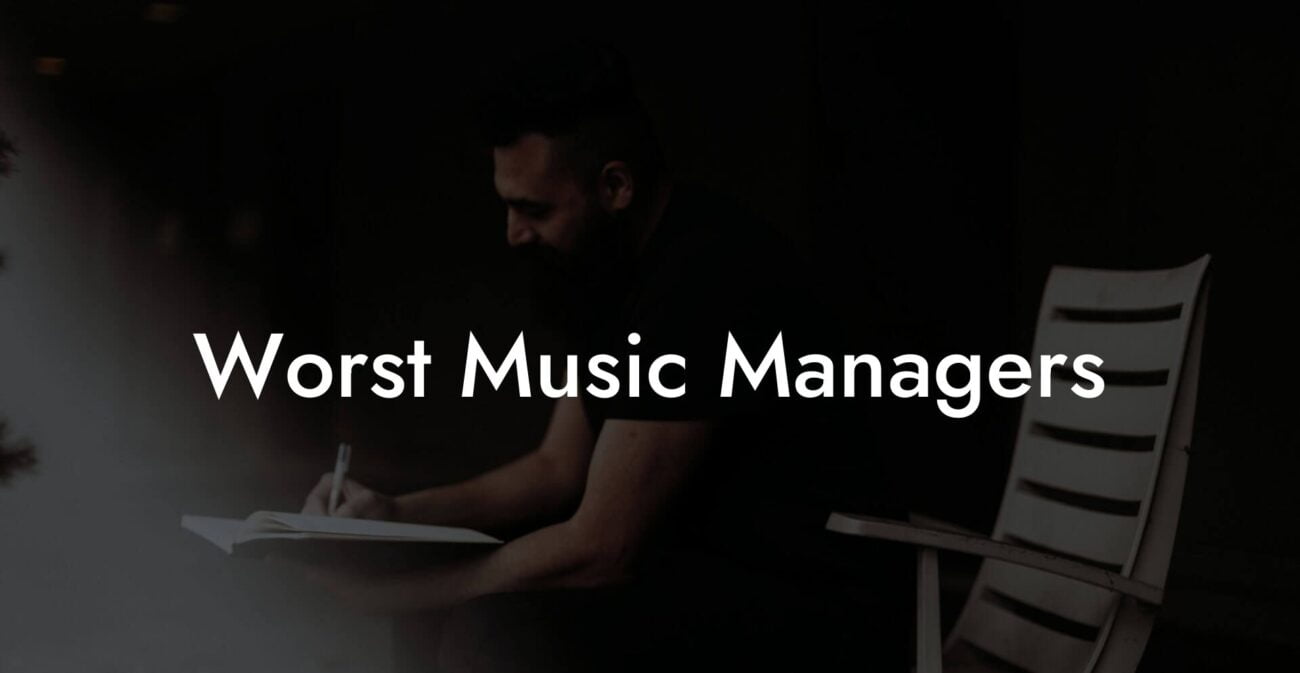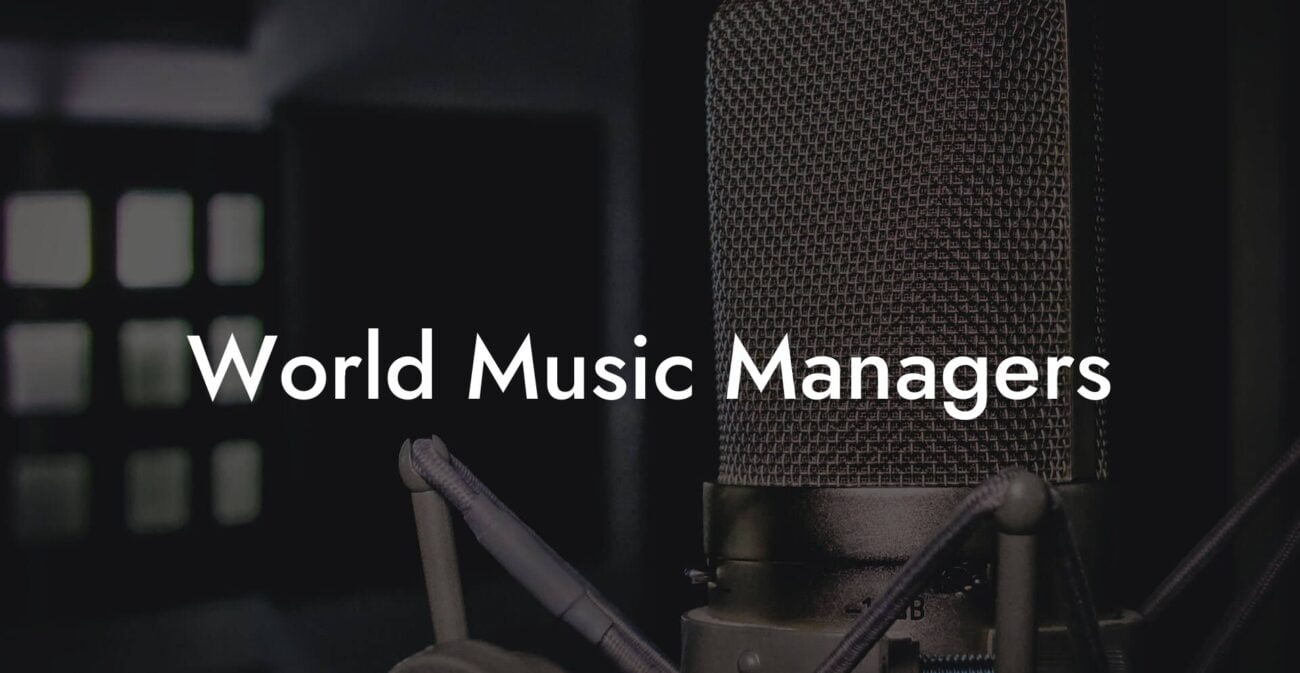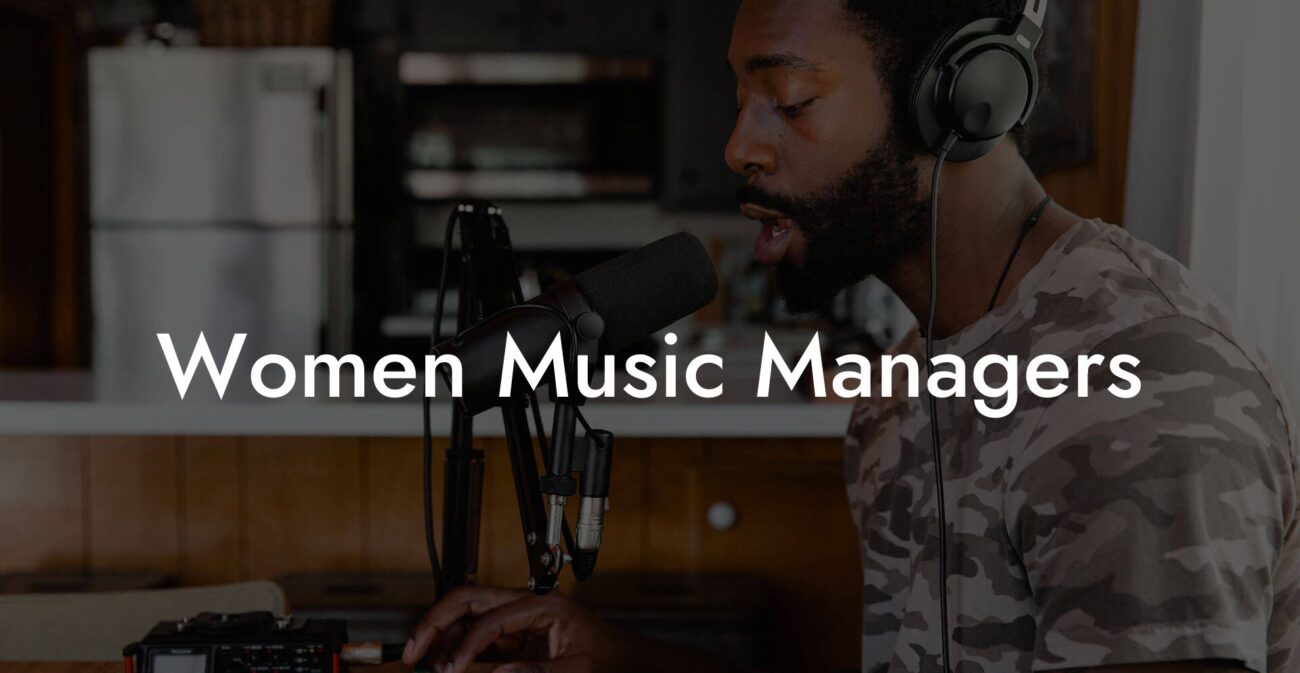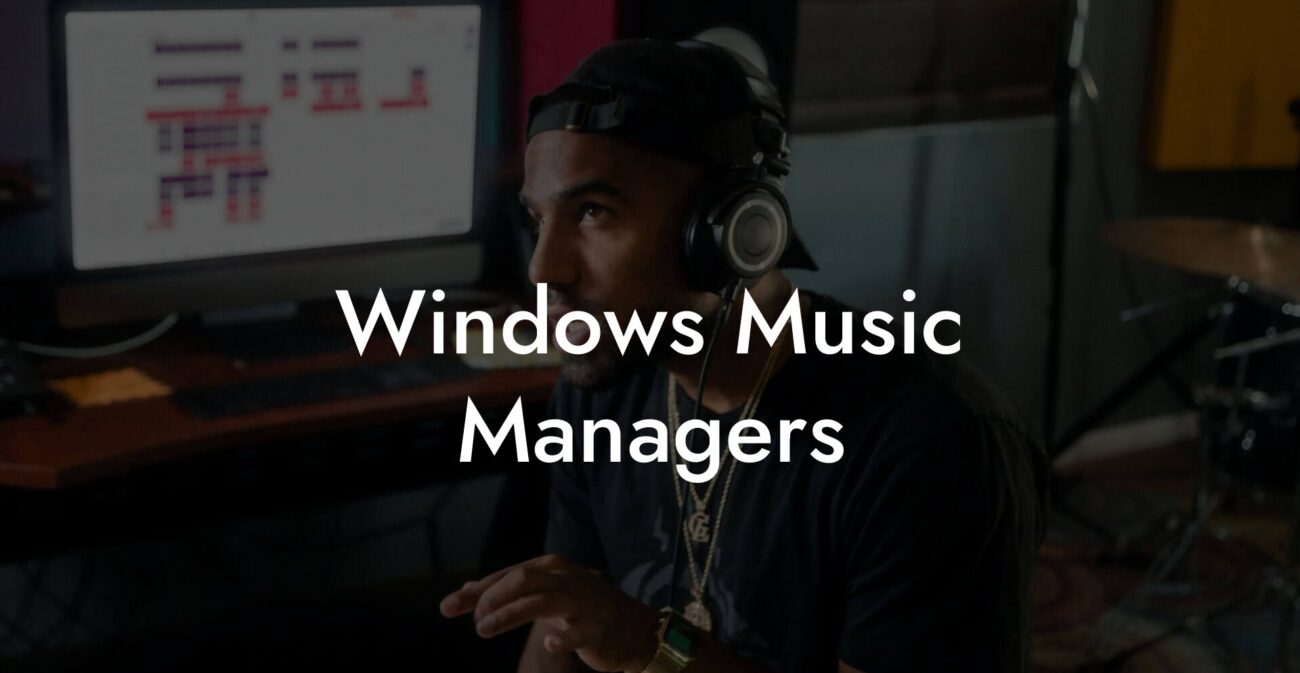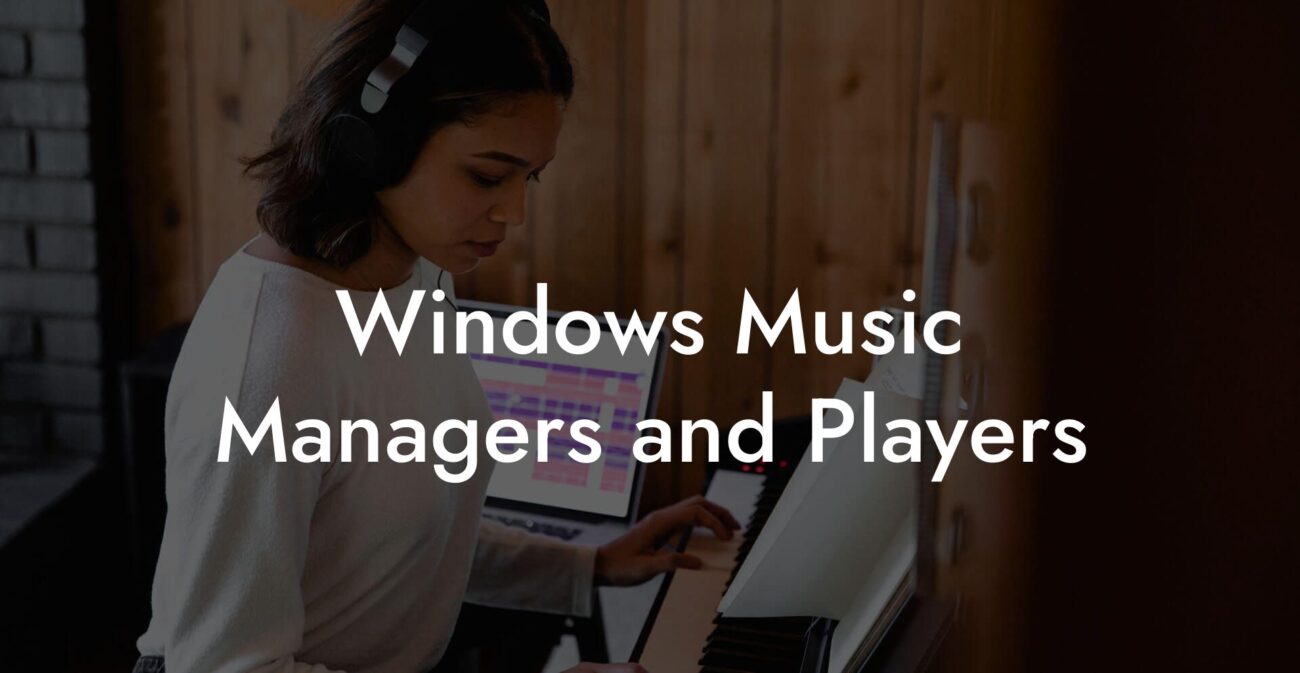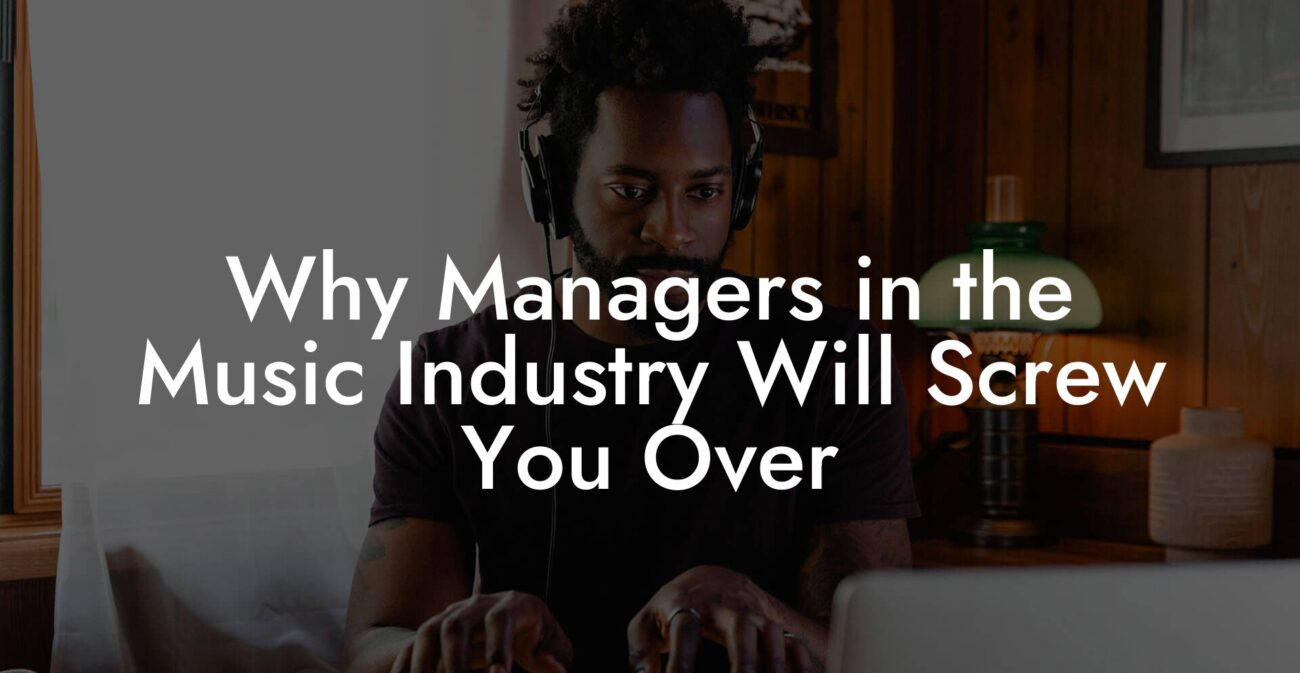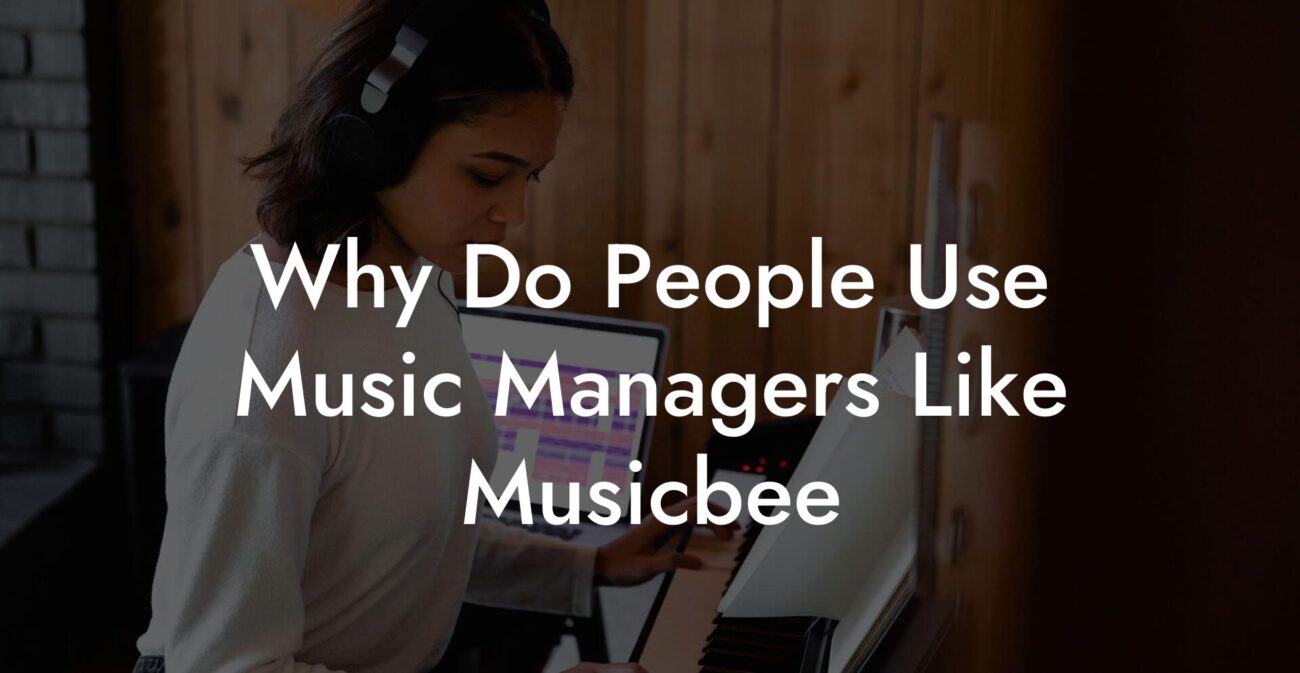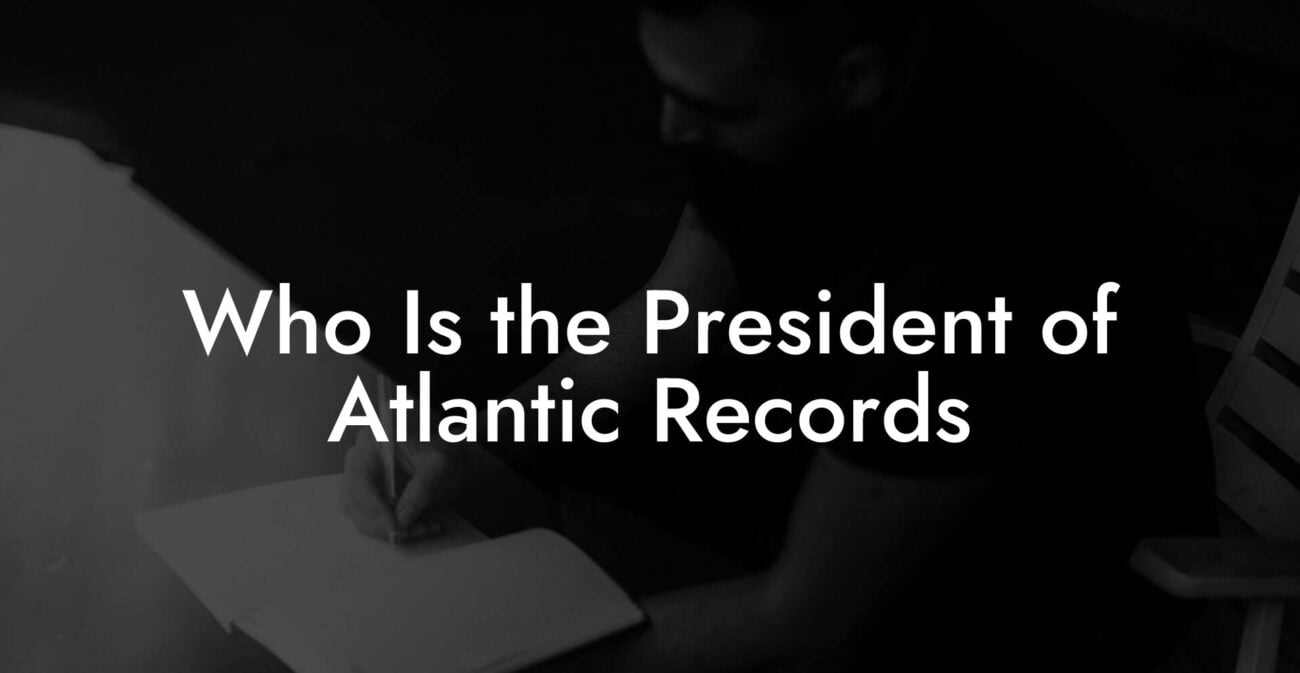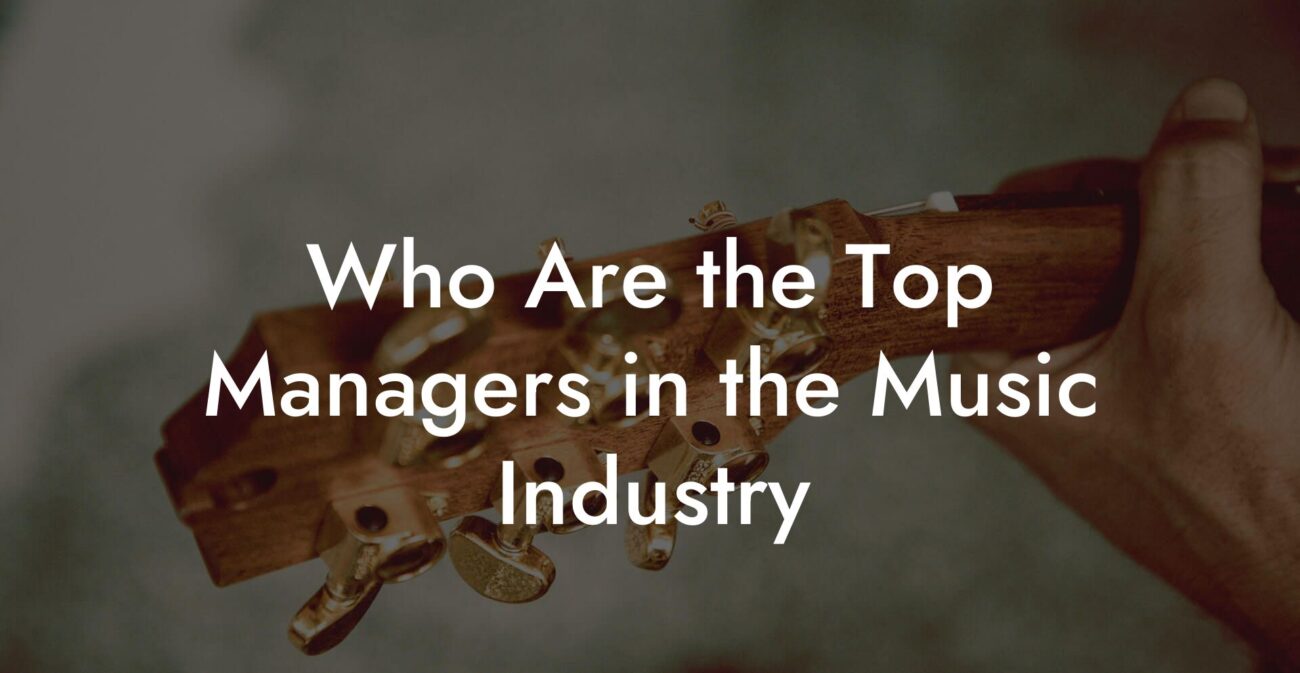Picture this: you’re in your cozy bedroom studio, headphones on, fingers flying over your keyboard as you craft the next chart-topping banger with the help of Lyric Assistant. Suddenly, you pause—questioning your next big career move. Your tracks are on fire, your social media’s buzzing, and yet, something’s missing. That’s when it hits you: maybe it’s time to find a music manager. But how do you really know when the moment is right? Let’s dive into the wild, unpredictable journey of the music world, break down the signs you’re ready for a manager’s help, and explore all the juicy details on managing YOUR music career like a boss.
Looking to write your next song? Transform your creative ideas into songs that people will love, and skyrocket your music career with Lyric Assistant. The perfect songwriting assistant. Find out more →
Quick Links to Useful Sections
- What Exactly Does a Music Manager Do?
- Why Do You Need a Music Manager?
- The Journey Begins: Are You Really Ready for a Manager?
- Your Social Media is on Fleek
- You’ve Got a Discography to Show
- You’re Facing Decisions That Can Make or Break Your Career
- You've Outgrown the DIY Scene
- Building a Rockstar Identity: Your Brand, Your Vibe
- How a Music Manager Amplifies Your Career
- Evaluating Your Career Milestones: Signs You’re Ready for a Manager
- The Fan Base Factor
- Revenue Is No Longer Just a Dream
- Feedback from Industry Insiders
- Complexity in Your Schedule
- Your Creative Direction is Evolving
- When to Stop DIYing: Transitioning from the Hustle to a Managerial Partnership
- How to Find the Right Music Manager for You
- Network Like You Mean It
- Do Your Homework
- Interviews and Vibes
- Legal and Contractual Know-How
- Trust Your Gut
- Navigating the Financial Side of Music Management
- The Art of Balancing Creative Freedom with Professional Guidance
- Pros and Cons of Partnering with a Music Manager
- Pros
- Cons
- Overcoming Setbacks and Managing Expectations
- Strategies for a Successful Managerial Partnership
- Resources and Community Support: Your Next Steps
- Frequently Asked Questions About Finding a Music Manager
- Your Next Steps on the Journey to Music Management Success
What Exactly Does a Music Manager Do?
Think of a music manager as your personal shepherd in the chaotic world of showbiz. They’re not just the person who books your gigs or tightens your schedule; they’re your advocate, strategist, and often your most trusted confidant. A music manager wears many hats, handling everything from negotiating contracts, securing press, and booking tours, to offering guidance on your music style and brand image. In short, they’re there to take the business side of your career off your shoulders so you can focus on what you do best: making killer music.
In an industry as frenetic and competitive as music, a solid manager is worth their weight in gold. They know the ins and outs of the music business, the latest industry trends, and – most importantly – have the connections to get your music heard by the right people. Without a manager, you might be an amazing musician lost in a sea of talent, struggling to navigate the convoluted world of music contracts, booking agents, and social media algorithms.
Whether you’re an indie singer-songwriter or a budding hip-hop sensation, understanding what a music manager brings to the table is crucial. They’re not about taking over your creative voice; they’re about amplifying your potential, securing opportunities, and helping you build a sustainable career. And let’s face it—having someone in your corner who speaks fluent “music biz” is a game-changer.
Why Do You Need a Music Manager?
The moment you realize you’re juggling too many hats—a part-time lyricist, social media guru, and amateur booking agent—it might be time to consider a professional manager. Here are some telltale signs you’re ready to level up:
- Your Music is Gaining Traction: You’re consistently releasing tracks that are getting likes, shares, and streams, and the buzz around your music is growing steadily on all your platforms.
- Opportunities Are Knocking: Whether it’s invitations to perform at local venues or offers from record labels, the times when you need to say “yes” might be coming too frequently for you to manage on your own.
- You’re Spending More Time on Administration than Art: When your calendar is packed with email threads, negotiations, and logistics instead of songwriting sessions and studio time, a manager can help you refocus on your true passion.
- You’re Ready to Expand Your Network: Ah, the magic of connections! A seasoned manager will have industry contacts that can open doors—gigs, collaborations, sponsorships, even that coveted placement in a blockbuster commercial.
- Your Vision is Evolving: When you’re ready to transition from a bedroom producer to a polished artist with a clear brand identity, a music manager is your co-pilot in crafting and executing that vision.
If these scenarios resonate with you, it might be high time to bring a professional into your creative corner to help steer your career.
The Journey Begins: Are You Really Ready for a Manager?
Let’s face it: timing is everything. Even if you’re producing beats that could rival the pros, hiring a manager isn’t a decision to be taken lightly. The right time to find a music manager usually coincides with a few key milestones in your career:
Your Social Media is on Fleek
When your TikTok videos, Instagram reels, and Spotify streams are seeing sustained growth, it’s a strong indicator that you have an audience hungry for more. If your social posts are getting engagement levels that make you do a happy dance, this momentum is exactly what a manager can build upon.
You’ve Got a Discography to Show
A solid body of work—be it EPs, singles, or a full-length album—demonstrates that you’re serious about your music and are ready to commit. A manager thrives on artists with a proven track record, so having a collection of polished releases is a huge plus.
You’re Facing Decisions That Can Make or Break Your Career
As your career expands, you’ll eventually face big decisions—like whether to sign with a record label, invest in professional music videos, or embark on a tour. These are the moments when a savvy manager, with their experience and strategic foresight, can help you navigate potential pitfalls.
You’ve Outgrown the DIY Scene
The DIY approach works wonders in the early days. But if you’re still handling everything from lyric writing (a nod to our pals at Lyric Assistant who keep your songcraft sharp) to booking your own gigs, it might be time to consider a reallocation of your energy. When your creative juices are being spent on admin tasks instead of producing new music, a manager can reclaim that time for you.
Building a Rockstar Identity: Your Brand, Your Vibe
In today’s hyper-connected digital world, your brand is your currency. Whether you’re rocking vintage threads or flaunting neon accessories, your visual identity, online presence, and overall vibe are intimately tied to your music. A music manager not only helps in booking shows or striking partnerships but also works with you to refine your image and tell your story in a way that resonates.
Think about it: having a consistent brand makes it easier for fans and industry pros to remember you. Someone who understands the cultural pulse of millennial and Gen Z audiences knows how to package your music into a story. From curating your Instagram aesthetic to guiding you through interviews with a bit of cheeky humor, your manager becomes an essential part of your story.
Invest time in developing your identity now, and when the right manager comes along, you’ll have a compelling narrative to share. After all, an artist without a distinct vibe is like a pizza without any toppings—just not as appetizing.
How a Music Manager Amplifies Your Career
Let’s break down the magic a music manager brings into your orbit. At the risk of sounding like a late-night infomercial, a manager is the secret sauce to your success. Imagine having someone who:
- Negotiates your contracts with industry giants while you concentrate on dropping the next epic track.
- Curates opportunities—from collaborating with renowned artists to securing headline festival spots—that put your music out in front of a wider audience.
- Offers strategic advice on everything from tour planning to digital marketing, ensuring that your career remains on an upward trajectory.
- Shields you from the less glamorous parts of the music business, letting you focus on your creative process.
- Provides honest feedback and a fresh perspective on your music and brand.
Essentially, a music manager is like that friend who not only sees your potential but also knows exactly how to help you break free from the DIY grind and step into the major leagues.
When you dial in the right manager, the result can be a smoother, more focused journey from bedroom beats to center stage. It’s not just about business—it’s about creating a space where your creativity can soar.
Evaluating Your Career Milestones: Signs You’re Ready for a Manager
Determining the right time to bring a music manager on board is a personal journey—one that comes with its fair share of milestones. Let’s look at some of the key indicators that might mean it’s time to pass the baton:
The Fan Base Factor
One of the first red flags that shout “manager alert” is when your fan base starts growing organically. Whether that growth comes from word-of-mouth, viral social media posts, or stellar live performances, a burgeoning following is a clear signal that you’ve got something special on your hands. When your fans look forward to your every release, a manager can help translate that buzz into strategic career moves.
Revenue Is No Longer Just a Dream
If the income from your music—be it from streaming, merch, or live gigs—is steadily rising, it’s time to consider the business implications. A manager can help negotiate better deals, set up smart revenue streams, and plan for financial growth. When money starts flowing, you want someone who can ensure that you’re maximizing your earnings while protecting your interests.
Feedback from Industry Insiders
Sometimes the universe (or that guest lecturer at a local music workshop) drops hints. If industry insiders are telling you that you’re ready for a big break, it may be worth listening. Often, early career musicians receive nods from record labels, event promoters, and established artists. When those nods start coming in, it’s a signal that a music manager can help refine your pitch and negotiate on your behalf.
Complexity in Your Schedule
When managing your own bookings, press interviews, and gig logistics begins to feel like herding caffeinated squirrels, you’re entering manager territory. A cluttered calendar is not just a scheduling issue—it’s a sign that your time as an independent contender is evolving into that of a professional artist. A manager can streamline your schedule, create a balanced workflow, and ensure that every opportunity is strategically aligned with your career goals.
Your Creative Direction is Evolving
Growth as an artist often means evolving creative visions. When you notice a shift in your musical style, collaborate on new projects, or even dabble in songwriting that challenges the norm, you’re in that critical growth phase. This is when a music manager can serve as your trusted sounding board, helping you balance bold experimentation with a market-savvy strategy. Embracing these new directions with smart guidance can be the difference between staying underground and breaking into the mainstream.
In essence, if you’re juggling opportunities, revenue, and an expanding creative footprint, investing in a professional manager might be the best decision you can make for your career.
When to Stop DIYing: Transitioning from the Hustle to a Managerial Partnership
It’s tempting to wear every hat in the music business—artist, songwriter, promoter, and even accountant. But there comes a point when your well-intended hustle starts to feel like you’re trying to win a triathlon with one leg. If crafting lyrical masterpieces using Lyric Assistant leaves you with little energy to survey the business landscape, that’s a major clue you might benefit from a sounding board who handles the non-creative chaos.
The transition from doing it all yourself to delegating the business side of things is a defining moment in any musician’s career. It doesn’t mean you’re giving up control; rather, you’re empowering yourself to focus on the art while a professional manager works their magic behind the scenes. Delegation is not weakness—it’s a strategic move that has helped countless artists launch into stardom.
Ultimately, acknowledging that your energy is better spent on songwriting and stage performance rather than email negotiations is a pivotal shift. Embrace that moment as an opportunity to invest in your growth.
How to Find the Right Music Manager for You
Now that you’ve recognized the signs and are ready to take the leap, the next big question is: How do you find a music manager who really gets you? With a splash of humor and a dash of savvy, here are some tips that can help you navigate the sea of potential managers:
Network Like You Mean It
The music industry thrives on connections. Attend local gigs, participate in open mic nights, and join online communities where industry professionals hang out. Networking events aren’t just about swapping business cards—they’re about building relationships and letting people see the passion behind your music.
Do Your Homework
A potential manager should have a track record of success. Check out their portfolio, look for success stories with other rising stars, and don’t hesitate to ask for references. A quick Google search, or even a scroll through social media channels, can reveal if they’re genuinely connected to the industry or just all talk.
Interviews and Vibes
Finding the right manager is a lot like picking a bandmate—chemistry is everything. Arrange casual interviews (or coffee meetings if you’re in the same city) to gauge whether their vision aligns with yours. Ask questions like, “How do you handle creative differences?” or “What is your long-term plan for developing an artist?” These insights will help you determine if they’re someone you can trust with your musical future.
Legal and Contractual Know-How
Before you shake hands and sign on the dotted line, make sure you have a clear understanding of contractual obligations. Many musicians have shared horror stories of one-sided contracts that left them feeling like they’d sold their soul for a Spotify plug. If legal jargon isn’t your forte, consider getting an entertainment lawyer to help you review the details.
Trust Your Gut
At the end of the day, go with the manager who not only has the credentials and a killer network but also feels right on a personal level. A manager should be someone who shares your passion, understands your artistic goals, and is as excited about your music as you are.
Combining an effective mix of research, interviews, and personal intuition will set you on the right path to finding that invaluable collaborator.
Navigating the Financial Side of Music Management
Money talk isn’t always the most glamorous topic in the world of rock stars and chart-toppers, but the financial arrangements with your manager deserve serious attention. Typically, managers work on a commission basis, ranging anywhere from 10% to 20% of your earnings. This means that as your income grows, so does their reward—a win-win if you’re both aligned in your goals.
Before diving into any agreements, map out your revenue streams: streaming royalties, merchandise sales, live performance fees, and any sponsorship deals. A well-structured deal should be fair, transparent, and reflect the value your manager brings to your burgeoning career. Don’t shy away from negotiating terms that protect your interests. After all, your creative genius and hard work deserve nothing less.
Remember, a good manager is an investment. Yes, you’re sharing a slice of your pie, but if they turn your passion into a thriving, sustainable career, that investment pays off in spades over time.
The Art of Balancing Creative Freedom with Professional Guidance
One of the biggest fears artists have is that bringing a manager on board will stifle their creative freedom. The irony is, a competent manager actually enhances your artistry by taking care of the logistics and business intricacies behind the scenes. This gives you more time, energy, and mental space to focus on creating brilliant music.
Striking a balance between guidance and artistic liberty is an art form in itself. Clear communication, mutual respect, and well-defined boundaries are the cornerstones of a successful manager–artist relationship. A manager should not dictate every creative decision but rather provide insights and support that amplify your unique sound and vision.
When you’ve finally found that partner-in-crime who understands that a killer hook might be the difference between a hit and a miss, you’ll see that the collaboration not only streamlines your career but also fuels your creative spirit.
Pros and Cons of Partnering with a Music Manager
As with any major career decision, there are pros and cons to consider when deciding to work with a music manager. Let’s lay out the scales:
Pros
- Industry Connections: Gain access to an extensive network that can open doors to major gigs, collaborations, and endorsements.
- Time Management: Free up your schedule for creative endeavors by delegating logistics and negotiations.
- Financial Savvy: Benefit from expert negotiating skills that could maximize your revenue and ensure fair contracts.
- Strategic Direction: Develop a clear, focused career plan that aligns with your artistic vision.
- Stress Reduction: Enjoy the relief of knowing a seasoned professional is handling the business side of your career.
Cons
- Revenue Sharing: Be prepared to part with a percentage of your earnings, which might feel like paying a toll on your success.
- Potential Creative Differences: Misaligned visions between you and your manager can lead to friction and conflict if not managed properly.
- Dependency: Relying too heavily on a manager might hinder your ability to make independent, timely decisions.
In weighing these factors, it’s essential to remember that a proficient manager should help tip the scales in your favor by mitigating the downsides while enhancing your overall career trajectory.
Overcoming Setbacks and Managing Expectations
The path to musical stardom is rarely a straight line; it’s a winding highway full of bumps, detours, and the occasional unexpected pit stop. Even with a manager by your side, setbacks are part of the journey. Whether it’s a canceled gig due to a freak weather event or a disappointing contract negotiation, learning to navigate these challenges is what ultimately makes you stronger as an artist.
A key part of managing expectations is understanding that growth takes time. While your manager will work tirelessly to secure opportunities and negotiate deals, not every venture will immediately translate to skyrocketing success. Keep your focus on the long game—your musical evolution and the gradual building of a loyal fan base. Remember, even the biggest stars had their share of setbacks before they finally hit it big.
Maintaining open communication with your manager is essential. Discuss challenges openly, celebrate the small victories, and recalibrate your strategies as needed. This collaborative approach helps keep your career momentum steady even during temporary slowdowns.
Strategies for a Successful Managerial Partnership
Teamwork makes the dream work, and nowhere is that more heartening than in a fruitful partnership between an artist and their music manager. Here are some tips to ensure that both parties are on the same page:
- Clear Vision: Establish your long-term artistic and career goals from the outset. Share your inspirations, musical influences, and the vibe you want to cultivate so your manager has a clear picture of your ambitions.
- Mutual Respect: Respect each other’s expertise—the creative genius you bring to the table and the business acumen your manager offers. Trust is crucial for smooth collaboration.
- Regular Check-Ins: Schedule consistent meetings to review progress, brainstorm new ideas, and adjust strategies as needed. This keeps the communication channels open and ensures both sides stay aligned.
- Flexibility: The music industry is notoriously unpredictable. Be prepared to adapt your plans and expectations as you respond to trends, opportunities, or unexpected challenges.
- Document Everything: From contracts to plans for tour dates and collaborations, having a written record of all agreements prevents misunderstandings and helps keep commitments accountable.
With these strategies in place, you’re better positioned to forge a long-term partnership that not only elevates your career but also cherishes your creative integrity.
Resources and Community Support: Your Next Steps
Venturing into the realm of professional music management can feel like stepping into a new world—but you’re not alone. There are a myriad of resources, communities, and online platforms designed exclusively for emerging artists ready to make their mark.
Start by connecting with fellow musicians, industry professionals, and music forums where advice and personal experiences abound. Social media groups, local meetups, and even webinars on music business fundamentals are treasure troves of insights that can help you navigate your new journey.
Check out blogs, podcasts, and YouTube channels run by established artists and managers who spill the secrets of their success. And don’t forget that Lyric Assistant is here to support your songwriting endeavors with robust tools that help transform your lyric ideas into lyrical gold.
Whether you’re seeking mentorship, looking for internship opportunities at music management firms, or just wanting to swap war stories with like-minded artists, building a network of support will be your secret weapon. The more connected you are, the smoother your journey becomes.
Remember, the path to a successful music career is paved with community, perseverance, and the willingness to learn every day. Your journey toward finding the right music manager is just one part of your larger adventure—one that will eventually lead you to stages, studios, and success far beyond your wildest dreams.
So, take a deep breath, bask in the glow of your growing success, and get ready to embrace a vibrant future in music with a manager who’s as dedicated to your art as you are.
Frequently Asked Questions About Finding a Music Manager
Navigating the ins and outs of the music industry can generate plenty of questions. Here are some of the most common queries that artists like you often have when considering a manager:
1. When is the right time to start looking for a music manager?
The right time is when your music starts gaining consistent traction, your fan base is growing, and you find yourself overwhelmed with business tasks. If you’re juggling gigs, social media, and songwriting all at once, a manager can help streamline your career.
2. What qualities should I look for in a music manager?
Look for a manager with a robust network, a proven track record, excellent communication skills, and, most importantly, someone who genuinely believes in your artistic vision. A good manager should serve as a strategic partner, offering both business acumen and creative support.
3. How do managers typically get paid?
Most managers work on a commission basis, usually taking around 10-20% of your earnings from various revenue streams. Ensure you have clear contractual terms before signing any agreements.
4. Can I still have creative control if I work with a manager?
Absolutely. A capable manager understands that your creative vision is paramount. Their role is to support and enhance your artistry, not to dictate your creative choices.
5. What if I don’t have a huge following yet?
While many managers prefer working with artists who have an established presence, some are willing to invest in emerging talent. Focus on honing your craft, building a strong portfolio (with the help of tools like Lyric Assistant), and networking actively.
6. How can I vet potential managers?
Do thorough research on their past work, ask for references, and have honest conversations to ensure their vision aligns with yours. Trust your gut—if something feels off, it may be best to keep searching.
7. Can I have more than one manager?
Typically, artists have one primary manager to avoid conflicts and ensure cohesive strategies. However, you might work with additional teams for specialized areas like marketing or legal support.
8. What resources can help me learn more about music management?
Look for industry podcasts, blogs, webinars, and books on the music business. Networking with seasoned artists and attending industry events are great ways to gain firsthand insights.
With the right approach and supportive resources, you’ll soon be well-equipped to navigate your next big step in the music industry.
Your Next Steps on the Journey to Music Management Success
Embarking on the journey to find a music manager is a bold and exciting step in your musical career. Whether you’re a bedroom beat-maker who’s finally ready to light up the big stage or a days-long songwriter looking to turn those lyrical gems into chart-toppers, now is the moment to seize control of your future.
Start by taking inventory of your accomplishments, setting achievable yet ambitious goals, and actively engaging with the communities that fuel your inspiration. Remember, this isn’t just about adding another name to your contact list—it’s about forging a path that lets your creativity and hard work shine.
Embrace every part of your journey: the sleepless nights perfecting your lyrics with Lyric Assistant, the moments of self-doubt before a big gig, and the triumphant celebrations when your track goes viral. Each experience, each connection, and each challenge is molding you into the artist you’re destined to be.
Now’s the time to scout out that music manager who can partner with you for the long haul—someone who will help you navigate contracts, plan epic tours, and ultimately, elevate your artistry to levels you’ve only dreamed of. The music world is waiting, and your unique sound is ready to make its mark.
So step up, reach out, and trust the process. This journey is just starting, and with a strategic manager by your side, the stage—and the spotlight—belong to you.

